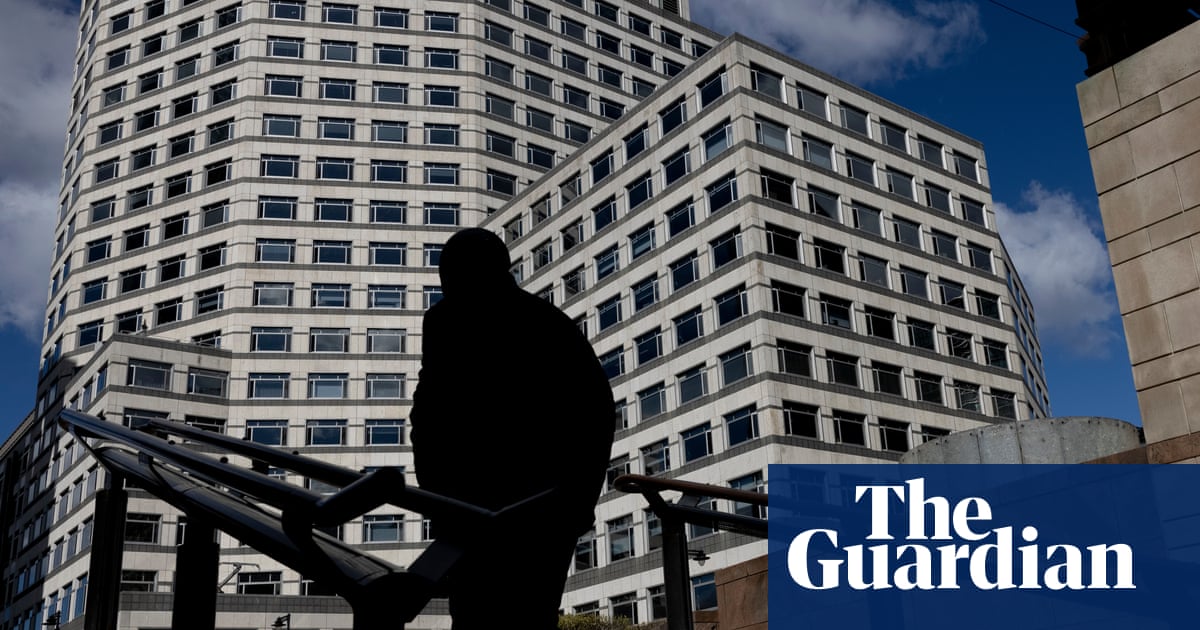Bosses atCredit Suissewere warned against dealing with the Australian financier Lex Greensill’s eponymous company three years before the collapse of his Greensill Capital, which once employed the former UK prime minister David Cameron as an adviser.
The “character judgment” of senior Credit Suisse managers was challenged in anonymous messages they received as early as 2018, which raised concerns over the Swiss bank’s dealings withGreensill, according to a report by the Swiss regulator Finma, released under a London court order after a request by the Guardian and other media.
The document showed senior managers were warned several times about the risks involved in its business dealings with Greensill and his firm, the 2021 collapse of whichcontributed to Credit Suisse’s shocking demisein March 2023.
A message from an anonymous tipster raised “strong doubts” over the bank’s strategy of packaging up Greensill’s loans into $10bn (£7.4bn) worth of investable funds for wealthy clients.
Greensillappeared at the high court in London this weekas a witness in a month-long trial, in which a former Credit Suisse fund is suing the Japanese tech investor SoftBank for $440m over a complex deal it allegedly coordinated with Greensill Capital before its collapse.
The Finma report, released as part of the trial, detailed the messages sent to Credit Suisse managers. “We also have serious doubts about your character judgment in choosing Greensill Capital as a partner in this field, and even more so in giving them the degree of discretion over your clients’ money which they appear to have,” the message said. The tipster was also concerned that a “large proportion” of those loans were tocompanies in the metals magnate Sanjeev Gupta’s troubled steel empire.
The message added that the recent collapse of another set of Greensill-backed funds offered by rival asset manager GAM “should be taken as a strong warning … you need to take care”.
One senior manager forwarded the 2018 tipoff to Lex Greensill, adding: “People in CS are receiving anonymous mails … seriously, you have to rethink your communication strategy!”
Greensill Capital, founded in 2011, offered corporate loans, giving companies advances on their invoices in exchange for a fee. But its founder, the Australian melon farmer turned City banker, entered into a series of complex financial agreements and marketed his lender as a tech firm stacked with high-profile advisers including Cameron.
Greensill went on to attract a series of large investors including General Atlantic and SoftBank, whose investments were purportedly meant to expand Greensill’s activities.
“However, as it later turned out, these funds were primarily used to pay out private investors and to provide Greensill Bank, which was increasingly coming under regulatory scrutiny, with additional capital,” the Finma report stated. “Under the management of Lex Greensill, the company provide[d] customised suits for its employees, elegant business premises and its own fleet of business jets.”
Finma’s report, which was compiled in December 2022 after nearly two years of investigations, showed Credit Suisse bosses continued to receive warnings over their dealings with Greensill as late as June 2019.
Greensill was, at the time, still on the rise and had hoped to launcha £22bn stock market flotationbefore the Covid pandemic put its clients and investors under severe financial strain.
Sign up toBusiness Today
Get set for the working day – we'll point you to all the business news and analysis you need every morning
after newsletter promotion
Greensill eventually collapsed in March 2021, after insurers refused to renew contracts that underpinned its loans. It came amid growing concern over the firm’s management and its outsized exposure to Gupta’s metals empire, which ultimately sparked astring of financial and political scandals.
It forced Credit Suisse to close its $10bn Greensill-backed funds, leaving wealthy customers nursing hundreds of millions of dollars worth of losses and further eroding confidence in Credit Suisse. That led the Swiss regulator, Finma, to launch what became a near two-year investigation into its dealings with Greensill.
The full resulting Finma report was never previously released. But key findings, released in February 2023, declared that Credit Suisse “seriously breached its supervisory obligations” and would face additional oversight for senior managers and important business relationships. The 167-year-old bank collapsed a month later, leading to its emergency rescue by rival UBS.
UBS is still trying to recoup money for former investors of the Greensill-backed Credit Suisse funds.
Commenting on the Finma report, UBS said: “This is a legacy Credit Suisse matter. The conduct described in the report pre-dates UBS’s acquisition of Credit Suisse.”
A representative for Lex Greensill declined to comment.
